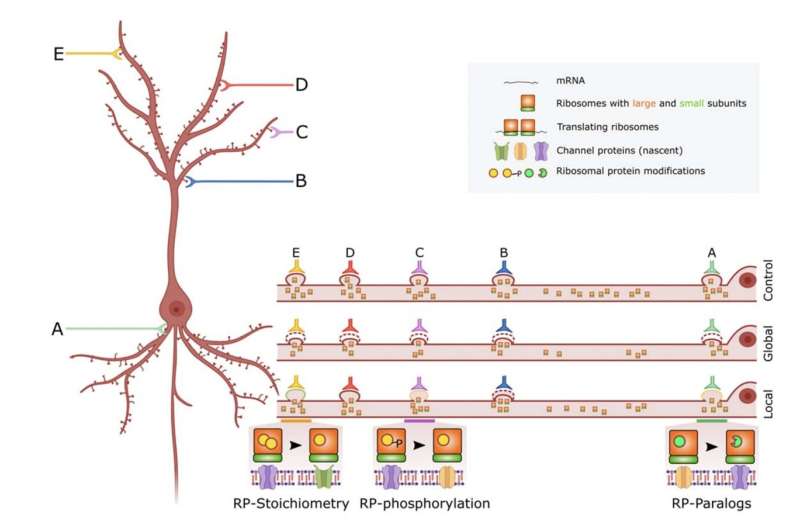This article has been reviewed according to Science X's editorial process and policies. Editors have highlighted the following attributes while ensuring the content's credibility:
fact-checked
peer-reviewed publication
proofread
Exploring the ribosome–depression link

A group of ribosomal protein genes connect animal models of depression to human patients with major depressive disorder. In order to research depression treatments, scientists use a mouse model, inducing a state with similarities to depression though exposure to variable, unpredictable, and uncontrolled stressors over days or weeks. But is this state molecularly akin to what humans with major depressive disorder experience?
To find out, Xiaolu Zhang, Mahmoud Ali Eladawi, and colleagues examine transcriptomics data from postmortem human brain tissue and from several mouse models of stress, seeking to pinpoint conserved genes.
The authors found that ribosomal protein genes are commonly dysregulated in these stress paradigms. The authors further demonstrated that this dysregulation is potentially triggered by stress hormones and is reversible during remission phase of depression or is attenuated when the receptors of the hormones are blocked. The findings are published in the journal PNAS Nexus.
A seeded gene co-expression analysis suggests that the ribosomal proteins in question are important for the homeostatic feedback regulation of pathways associated with synaptic communication. The ribosome is a cellular organelle that carries out translation and protein synthesis, and which is involved in the stress response of organisms as diverse as yeast, bacteria, and animals.
Together, the findings indicate that stress-induced ribosome dysregulation underlies human depression in a complex fashion. According to the authors, dysregulation of ribosomes may change the synthesis of alternate proteins, which then alter the way neural synapses function—a change that manifests as a mood disorder.
More information: Xiaolu Zhang et al, Ribosomal dysregulation: A conserved pathophysiological mechanism in human depression and mouse chronic stress, PNAS Nexus (2023). DOI: 10.1093/pnasnexus/pgad299


















